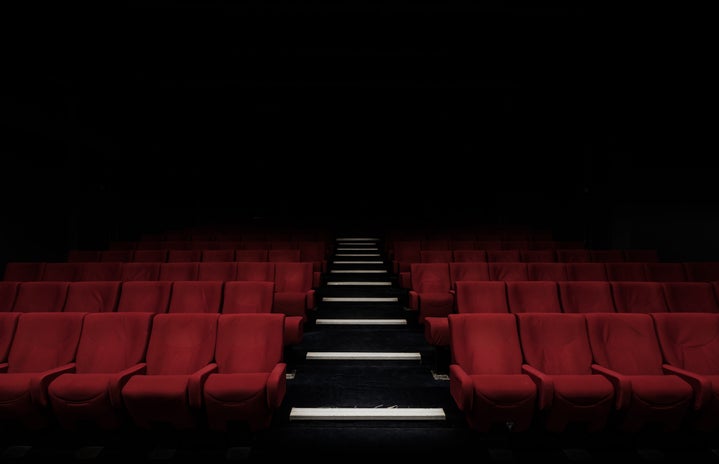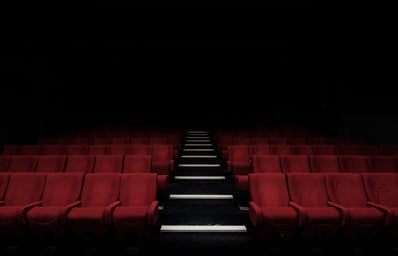Recently, Twilight author Stephanie Meyer announced that her upcoming book, Midnight Sun — the first addition to the saga in 12 years — will be published on August 4th, 2020. In anticipation of this announcement, diehard Twilight fans flocked to Meyer’s website in such a large number that they crashed the server.
However, these same fans who first devoured the vampire romance books as tweens are now revisiting it as young adults in the era of #MeToo, when the series is under scrutiny for its problematic portrayal of toxic codependency, stalking, and assault.
Here are four moments from the series that might make you reconsider your Twilight obsession.
- Edward Displays Predatory Behavior
-
While we all know that a large part of Edward’s predatory behavior has to do with him being a vampire, there’s another aspect to his behavior that’s unsettling. Perhaps it’s the age difference between the 107-year-old Edward (played by Robert Pattinson in the movie adaptations) and his love interest, 17-year-old human Bella (Kristen Stewart).
Their 90-year age difference aside, Edward displays more predatory behavior by confessing his overwhelming desire to kill Bella. As he explained to Bella in the first installation of the series, when he first laid eyes on her, “I wanted to kill you. I’ve never wanted a human’s blood so much in my life.” Instead of running away and blocking his number, this warning sign ignited a curious flame for Bella, who decided to trust him.
For InStyle senior editor Melissa Blake, Bella’s decision to trust Edward is a mistake. In her article “After 10 Years, Does Twilight Hold Up?” Blake states that Bella’s “obsession with [Edward] leads her to dangerous behavior (like, you know, visiting a house full of vampires, including one that’s trying to actually kill her) but she’s not afraid of any of it.” Instead, Bella’s fears are much more superficial: she dreads growing older while the immortal Edward gets to look young forever.
- Bella Is Your Typical Damsel in Distress
-
As Blake points out, another problematic area of the Twilight series is how the movie adaptations in particular “promote the idea that women are better when they are dull and submissive. Bella exhibits low self-esteem and reminds herself that she is not attractive and anti-social.” Because of this outdated gender stereotype, it can be argued that Bella Swan isn’t an ideal role model for young female readers.
It’s important to point out that, by the time the last Twilight movie was released in 2012, two iconic feminist characters had already challenged the status quo in the young adult genre. They were, of course, Harry Potter’s Hermione Granger and The Hunger Games’s Katniss Everdeen. Unlike Twilight’s heroine, Hermione and Katniss were portrayed as independent young women whose thoughts and actions didn’t solely revolve around the men in their lives.
While Hermione proves herself to be one of the smartest (and bravest) witches of her time, Katniss is the leader of revolution determined to bring down a system of injustice. In an article for The Guardian, author of How to be a Heroine Samantha Ellis argues that Katniss’s “qualities are so much more admirable than Twilight’s mopey vampire-lover Bella.”
- Jacob Forcefully Kisses Bella Without Her Consent
-
An article about Twilight would not be complete without mentioning the love triangle between Bella, Edward, and the werewolf, Jacob (played by Taylor Lautner). While fans used to engage in lively debates on whether Bella should be in a relationship with Edward or Jacob, there are some aspects to this triangle that haven’t aged well.
In a video for Vanity Fair, relationship therapists Laura Heck and Zach Brittle delve into the problematic elements of Twilight’s love triangle. Specifically, the scene from The Twilight Saga: Eclipse, where Jacob forcefully kisses Bella after confessing his (unrequited) love for her.
According to Heck, Jacob’s attempt to persuade Bella that she’s in love with him is problematic because “You don’t get to argue with somebody else’s feelings.” In this instance, Edward proves himself to be the more respectful partner when he “tells [Jacob] to only kiss [Bella] if she asks for it.”
“This entire series is about boundaries,” replies Brittle, “Where they are, and where they should be, and [Bella is] trying as best as she can to establish a boundary for [Jacob], and he just clearly oversteps.” At the same time, Edward is “trying to establish a very clear and appropriate boundary, a boundary of consent, which Bella was able to do for herself.”
Photos: Her Campus Media



